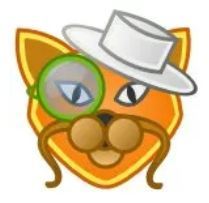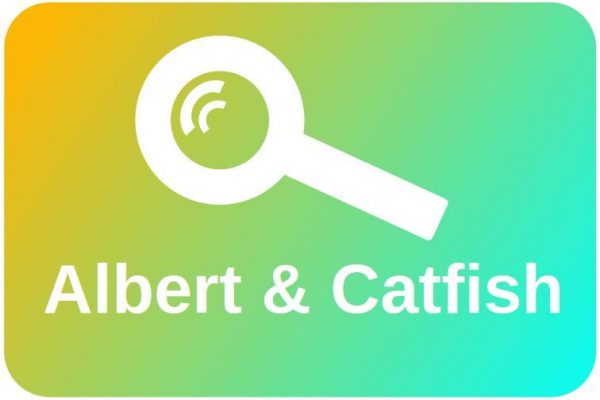One of the superpowers of computers is being able to find what you are looking for quickly and efficiently. Finding a needle in a haystack may have been an impossible challenge in the pre-computer days, but the advent of the computer has made finding things a lot easier, faster and more effective. For us Linux enthusiasts, there are plenty of alternatives available to make finding specific files, such as documents, photos, videos and applications, easier and faster. In this article, written by Paul Surman, one of the readers of this website, two powerful search applications for Linux are described based on his personal experiences. Paul shares his enthusiasm for Albert and Catfish and the way these tools makes his life in Linux easier, so enjoy and see if these powerful tools can be something for you as well.
The question as to which is the best program for any specific purpose depends on the program, but also on the person who is going to use it. Exceptional programs tend to rise in popularity, like the ones that most often come with Linux distributions. But what works best for you is what really matters.
This article is about Albert and Catfish, but I am not about to tell you they are the best, only that they have best suited me, and the reasons why. You may have different, perfectly valid reasons, for an entirely different choice. It’s a question of horses for courses. Linux offers diverse choices, and that is one of its many strengths.
I prefer programs that are intuitive to use. Obviously, some purposes are easier to make intuitive than others, but the simpler and more consistent a program is, the better as far as I am concerned. I like to be able to start pressing buttons, selecting menu items, and finding out for myself, rather than reading instructions. For the fun to start with the finding out.
The first search tool I used was Recoll, and although it took time to get to grips with, it did the job excellently. But the truth is, my requirements are such that I didn’t really need such a capable tool. I have tried a number of search tools now, Ulauncher and Cerebro come to mind, but none of them suited me, and I now use two, Albert and Catfish.
Albert
 I heard of Albert from a number of places, but it was this website that gave the best account of it, and the best description of how to obtain and use it. See John’s article “Albert is a good Spotlight alternative for Linux”.
I heard of Albert from a number of places, but it was this website that gave the best account of it, and the best description of how to obtain and use it. See John’s article “Albert is a good Spotlight alternative for Linux”.
I use it when I want to search for a file or program quickly. All you need to do is hit the Ctrl key at the same time as the space bar and up pops a little box in the middle of the screen, into which you type the file or program you are looking for. It is as simple as that. I can’t remember an occasion when I was unable to find something I was looking for.
I recommend reading John’s article on Albert on this site for more details, suffice it to say there are many ways of altering Albert’s appearance, and a number of extensions you can use. You get to the settings from a little icon on the right of the box, and all the options are easy to understand, or work out by simple trial and error.
Catfish
 Catfish is the other search tool I use. It will search for files (including hidden files), search by modification date, file type or location, and no doubt other things as well. You do need to update the search database from time to time. As you will know if you read my other article (“A non-technical Linux user’s tale”) on John’s site, I am a poet, and my computing needs are pretty much centered around this. Although I have used Catfish for various reasons, one need predominates. People who wrote a few angst ridden verses when a girlfriend jilted them years ago, but still think they are a poet, don’t usually write much. But the poets I know write poems continually. One of the problems Catfish helps me with is that I write so many I sometimes lose track of poems I’ve recently written but put aside to be edited later, they disappear under a pile of paper and their title disappears from the recent documents listed by my word processor, and I can’t find hard copies under the mountains of paper my writing generates. I didn’t say I am an organised person did I.
Catfish is the other search tool I use. It will search for files (including hidden files), search by modification date, file type or location, and no doubt other things as well. You do need to update the search database from time to time. As you will know if you read my other article (“A non-technical Linux user’s tale”) on John’s site, I am a poet, and my computing needs are pretty much centered around this. Although I have used Catfish for various reasons, one need predominates. People who wrote a few angst ridden verses when a girlfriend jilted them years ago, but still think they are a poet, don’t usually write much. But the poets I know write poems continually. One of the problems Catfish helps me with is that I write so many I sometimes lose track of poems I’ve recently written but put aside to be edited later, they disappear under a pile of paper and their title disappears from the recent documents listed by my word processor, and I can’t find hard copies under the mountains of paper my writing generates. I didn’t say I am an organised person did I.
Catfish allows me to put .odt into the search field, and set a search start date and finish date, and it will find all of my word processor files between those dates, thereby limiting the search, and the time it takes. It is much easier to find what I’m looking for that way. As I have Nemo-preview installed, I can easily check the contents of any files that look likely contenders without opening my word processor and messing up my recent documents list.
I know, I know, it would be better to be properly organised, but I produce a hell of a lot of documents, and in any case, I’m only human, and you must know by now what that entails.
If you don’t have Nemo-preview installed I recommend it, although it seems a bit glitchy. Sometimes I find it works better not left clicking, and hitting the space bar, but just hitting the space bar to get it to show the contents of a file. Again, it avoids messing up the recent documents list on Libre Writer.
I often wonder how many of a programs features users actually use, the above represents almost my entire use of Catfish, but I bet there are others out there who would also use only a fraction of its capabilities. Albert and Catfish between them work well for me.

About Paul
Paul Surman was born in 1947 in Oxford, and still lives in a nearby village. He is a member of Back Room Poets, a group of poets who organise readings and workshops in Oxford. He is currently working on a third collection to be called The Ghostly Effect. Paul’s work has been widely published, in magazines and anthologies.
Visit Paul’s website at https://paulsurman.weebly.com/ to learn more about his work as a poet.
Note: If, like Paul, you would also like to share your Linux story on www.reallinuxuser.com, please contact me via the contact page and let me know what you have in mind.




